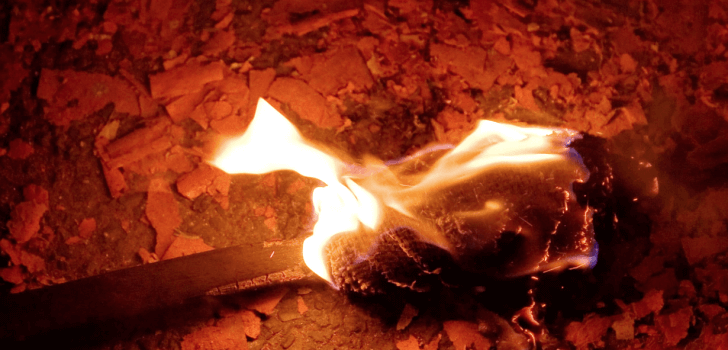Earlier this year, there was a “witch hunt” in the Central African Republic, as rebel groups had kidnapped alleged “witches” in order to burn the victims to death. In some cases, suspected witches were even buried alive. These killings took place at public ceremonies that showcased certain widely-held local superstitions in the war-infested country.
The witch-hunting report was released by human rights officers from the United Nations. The report features graphic images of suspected witches being tied to stakes and then burnt alive. Most of these killings took place between late 2014 and early 2015. The kidnappers and killers were led by the Christian “anti-balaka” militia, which has been fighting against Muslim Seleka rebels in country for more than two years.
There has been a large amount of violence in the Central African Republic in recent years, as the largely Christian nation was briefly seized by Muslim rebels in March of 2013. The chaos resulted in escalating violence, and anarchy took over outside of the capital city of Bangui. While the situation is being somewhat better controlled now, violence is still present.
Although presidential and parliamentary elections are set to be held in the country on December 27th, there are still concerns that more violence will break out. Some officials are wondering if it is indeed safe enough to hold democratic elections at this time.
Witchcraft is a commonly held superstition throughout Africa. Christian rebels have used these superstitions to intimidate people, extort money and exercise authority. In fact, the “crime” of “witchcraft” is still punishable by law in the Central African Republic. To this day, many prisoners in the country are being held on charges of witchcraft. With a weak state government, the Christian anti-balaka militia has largely become the ruling party in an essentially lawless area.
As for the recent “witch hunt”, the United Nations report revealed that at least 13 separate attacks took place. The victims ranged in age between 45 and 70, and most of the attacks happened near Baoro in the prefecture of Nana-Mambere. This region has been largely destroyed by clashes between rival rebel groups. Most of the victims were burned to death, but in one case, a victim was literally buried alive. At least three anti-balaka militia leaders have been identified in the killings.
Many of the victims were extorted, being told that they would be killed if they couldn’t come up with at least $30 to $80. Many people in the Central African Republic live off of less than $1.90 per day.
For now, it doesn’t look like the country’s policies regarding witchcraft are going to change anytime soon. It has been stated that reforming these archaic policies has been slow and deemed not to be a priority. Not to mention that the government itself has lost control to the rebel groups, who are getting away with whatever they want. It seems as though the rebel groups will continue to take advantage of these extremely outdated laws so that they can bully people around.
Stay Connected